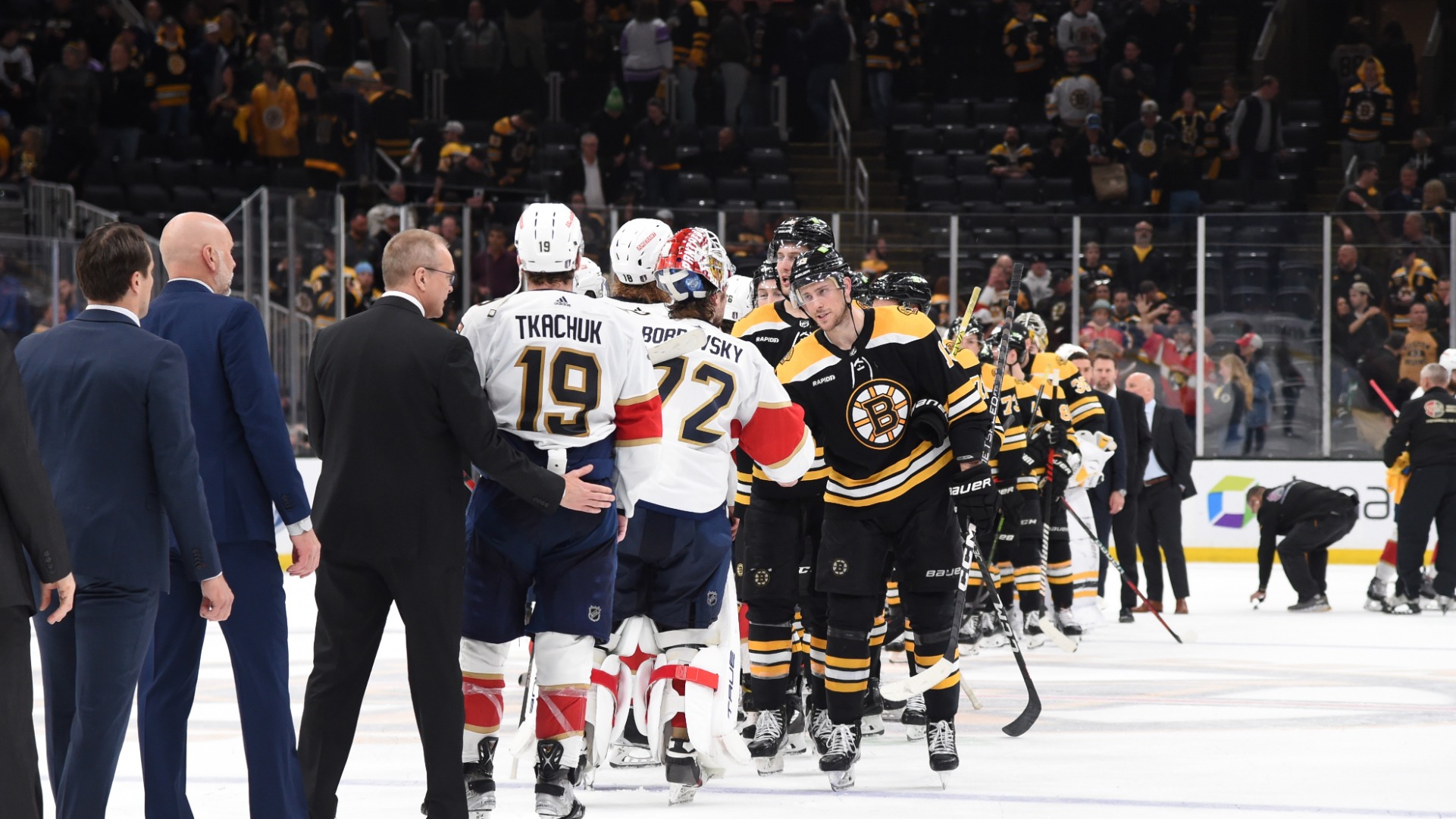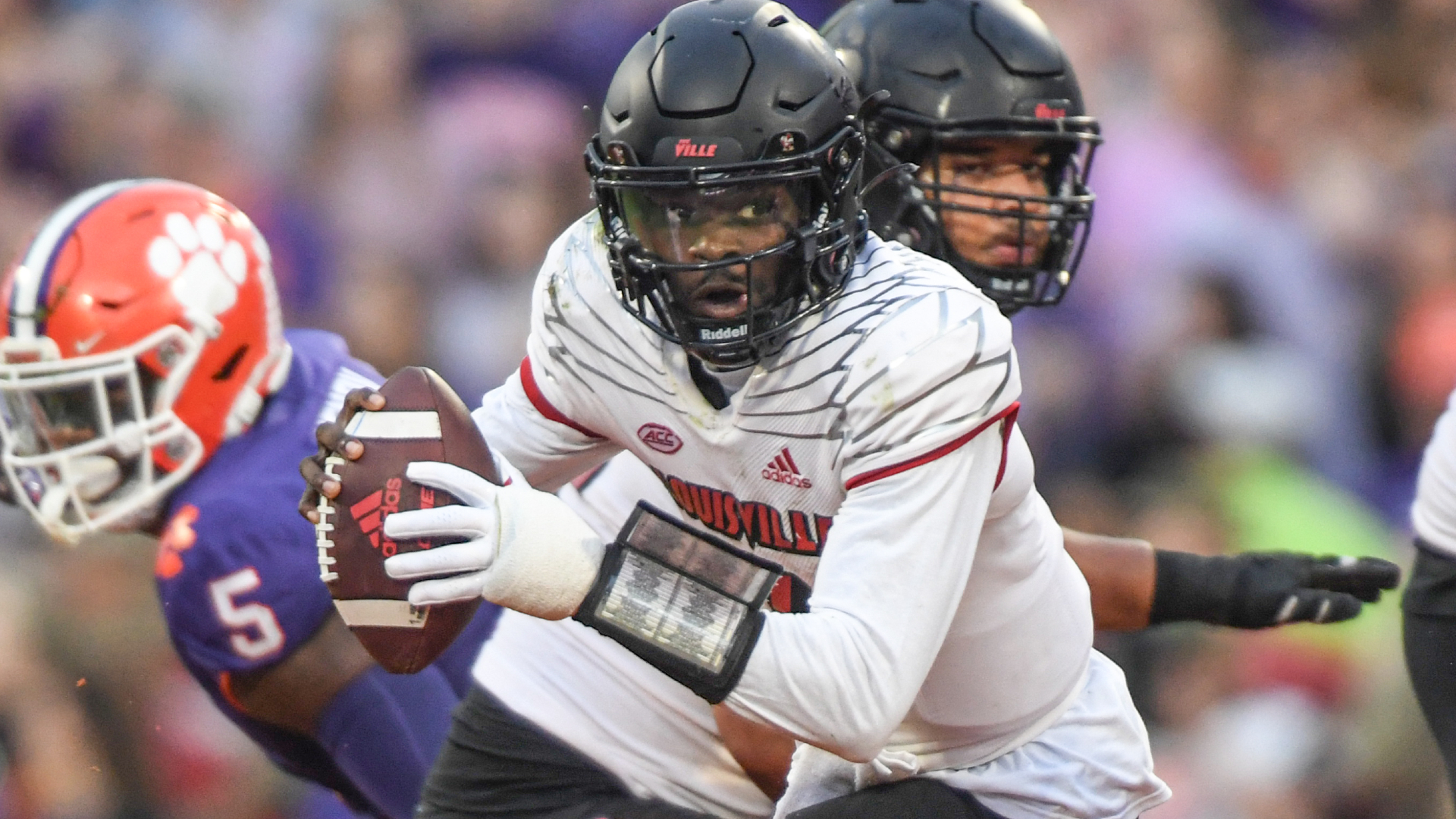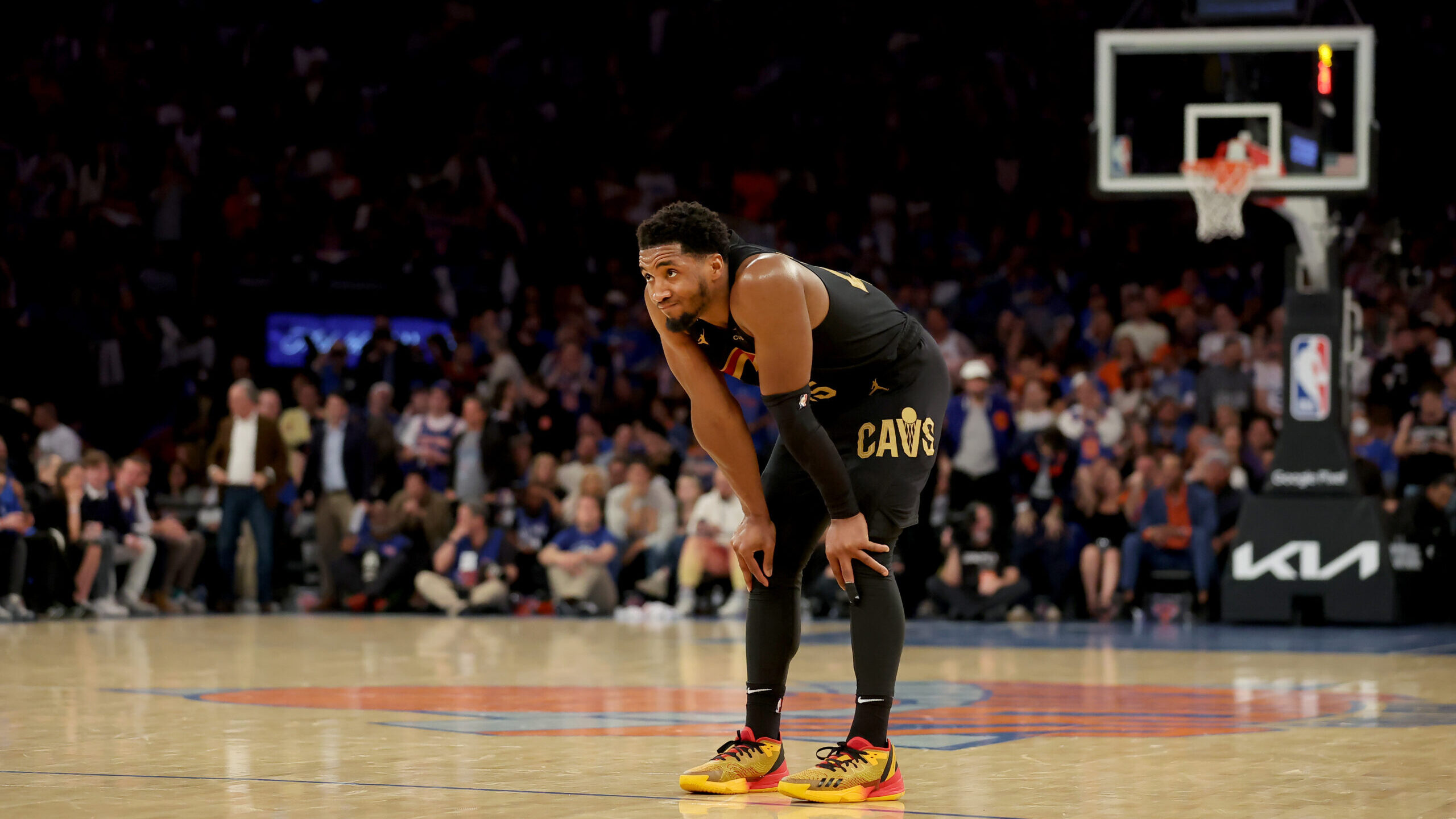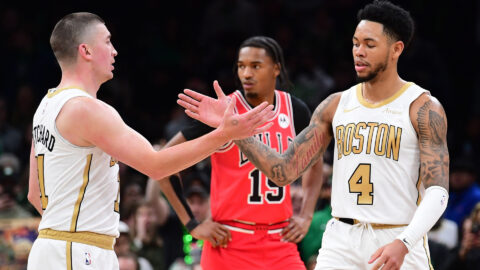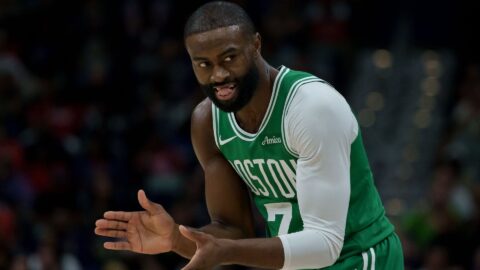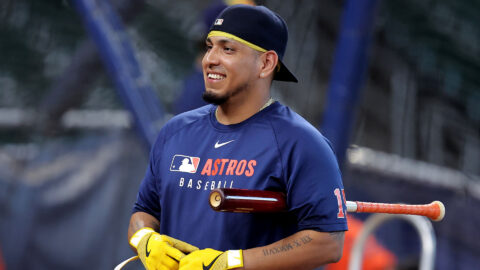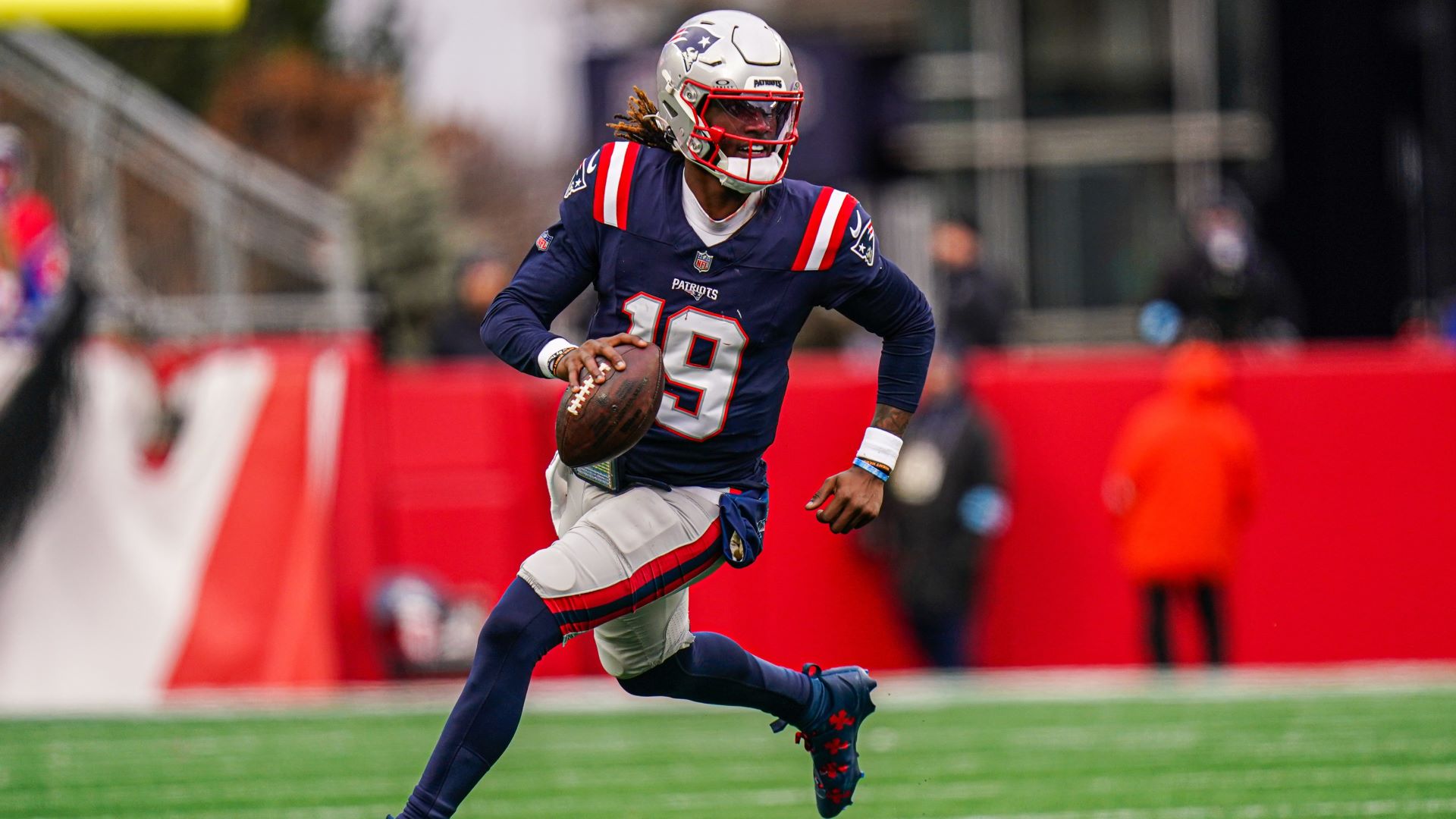The Bruins opened training camp in mid-September, seven and a half months ago. There were so many question marks and plenty of doubt about what would become of the 2022-23 season.
What transpired between then and Sunday night was truly historic, a record-setting regular season that exceeded every single expectation placed on the group. Then, just like that, it was over. For a team that has seen its share of heartbreaking setbacks over the years, the 2023 disaster -- losing in the first round of the Stanley Cup playoffs to a team that nearly missed the postseason -- is going to end up near the top of that list.
It's truly difficult to fathom that the 2023 Bruins won't play a single game in May, let alone June. It's hard to believe that a team that set just about every team record there was to set in the regular season couldn't even get out of the first round. It's puzzling that a team playing to give its universally respected captain, Patrice Bergeron, one final kick at the can came up short at the worst possible time.
That long-term processing is going to take some time for the Black and Gold supporters. In the short term, how could this have happened? Here are some Game 7 takeaways from one of the more disappointing losses in Bruins history.
The better team won
The Bruins died as they lived in this series: scrambling and struggling to clear their own zone. Carter Verhaeghe plunged the dagger, left all alone in the right faceoff circle. It was a fitting end to the sloppiest stretch of hockey the Bruins played all season. The perplexing part about it all is the simplicity of Boston's fatal flaw. Far too often in the series, the Bruins looked like the proverbial deer in headlights with the puck on their sticks. They made something as simple as a defensive-zone exit look like trying to solve calculus. On that final goal, there were three black sweaters stabbing at a puck behind the net only for a Panther to win the puck battle and set up a wide-open Verhaeghe in front.
Bruins coach Jim Montgomery sounded like a broken record by the time the series was over. He became uncharacteristically and visibly frustrated on the Bruins' bench, seemingly incapable of either solving the Panthers' riddle or getting his team to figure it out on the ice. In that regard, you have to credit Panthers coach Paul Maurice for his game plan and how he deployed it.
The shock of how it ended also overshadows the fact that the Bruins had three chances to close it out and were a minute away from, quite frankly, stealing the series in Game 7.
Save the "curse" talk, but ...
We're on the "Curses don't exist" record. The Bruins were the best team in hockey all season, and the Presidents' Trophy exists, so it goes to them. That fact had no bearing on how the Bruins were able to exit the puck from their own zone. It is, though, a worthwhile conversation to wonder how the anxiety of expectations might have squeezed some life out of the B's, especially once it became clear the Panthers were no cakewalk. In some ways, a second-round series with Toronto might have been easier for the Bruins. Boston knew a 65-win regular season was largely meaningless without at least a deep playoff run. Did that pressure get to them? It's not an unfamiliar position for a lot of this group. It's largely a lot of the same players who lost Game 7 of the 2019 Stanley Cup Final at home. In fact, the Bruins have lost four Game 7s on home ice since winning the Cup in 2011. We've seen them lose leads late in games, too, none worse than Game 6 of the 2013 Cup Final. Few teams and organizations have had as much sustained, day-to-day success over the last 20 years than the Bruins, but it's a different animal in the playoffs, regardless of how much you accomplish in the regular season.
The goalie conundrum
The Bruins had no choice but to start Jeremy Swayman in Game 7. Linus Ullmark's performance in Game 6 -- because of perhaps injury, fatigue, ineffectiveness or some combination of all -- was his worst of the season. The second guess, obviously, will be whether Montgomery should have broken that glass case earlier in the series. It's a worthwhile question not because of how it turned out, but rather because it was such a departure from the regular season. Ullmark was so good this season in part because he was able to get that rest throughout the campaign. Swayman was so good because he was given the chance to play. Quite frankly, Swayman was an asset in Game 7; his save on Matthew Tkachuk in overtime was Grade-A, even if it just delayed the inevitable. By straying so far from the norm, the Bruins put themselves in a position where it was unfair to both Ullmark and Swayman. It became clear, too late, that Ullmark wasn't able to answer the bell in the way it was asked of him. The Bruins then put Swayman in a tough spot, asking him to come off the bench and save the series.
Not strong enough even strength
There was a lot of talk in the final weeks of the season about the Bruins' power play. There were even questions about whether these B's could channel the 2011 Cup-winning team and go on a deep run without much on the man advantage. That turned out to be a non-issue, as the power play was a strength. The problem, however, was Boston ultimately relied too much on the man advantage. The Bruins scored 11 power-play goals in the series to just five from Florida. That discrepancy alone should be enough to win a series. The problem was the Bruins just couldn't do enough five-on-five. Florida outscored Boston 15-13 five-on-five, which doesn't sound like a mismatch. Going into the series, however, you look at the Bruins' depth and say "Well, this should be more than enough," and if there's anywhere that depth should have shined through, it's even strength. It's a top-to-bottom thing, too. Montgomery talked about how Florida's best players outshined the Bruins' best. That was especially true five-on-five where Bergeron and David Krejci didn't get much going. Boston's third line dominated at times -- Taylor Hall and Charlie Coyle largely had great series -- but it went quiet in Games 6 and 7. The Bruins' top even-strength defenseman was Brandon Carlo, which you wouldn't expect on a defense corps featuring the likes of Charlie McAvoy, Hampus Lindholm and Dmitry Orlov. Lindholm especially was a non-factor in the offensive zone without a single point the entire series, even strength or power play.
Now what?
This loss will sting for a long time on Causeway for a number of reasons. There's a bit of finality to this one, which we all knew that was lingering, but that's a much easier demon to reckon with if you fall short on Memorial Day, not April 30. Obviously, the big question will be whether Bergeron is coming back. He didn't look or sound like someone who has really contemplated doing this all over again next season. Krejci is in a similar boat. But it's not just those two. Dependable veterans like Nick Foligno and Tomas Nosek are unrestricted free agents. Orlov, Garnet Hathaway and Tyler Bertuzzi, a trio for whom the Bruins unloaded their next two first-round picks, are all UFAs. Cap space could be an issue, too. This was certainly the sort of team that you go all in for, but the reckoning that comes with that comes a little bit harder when you flop out of the first round.

